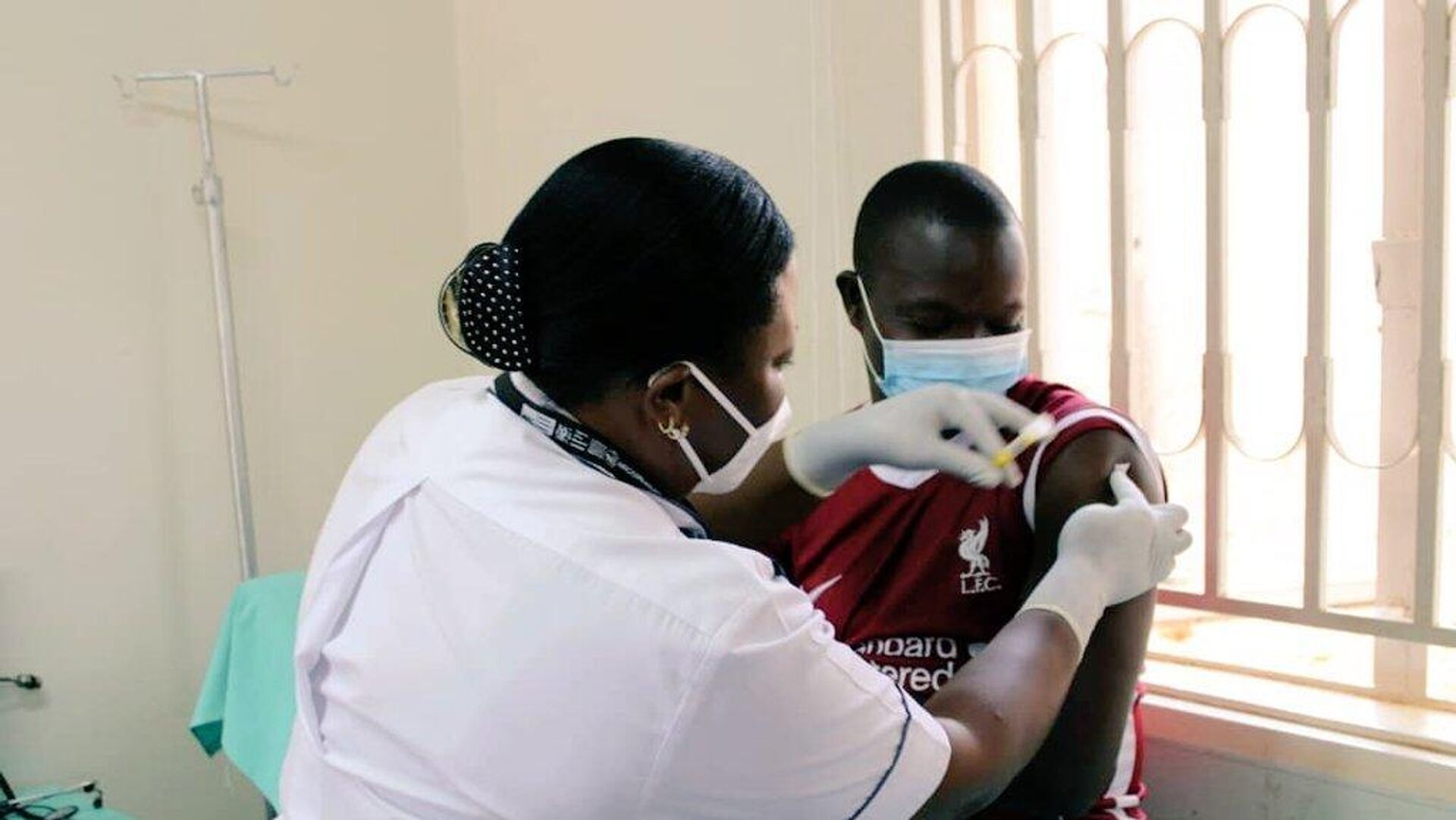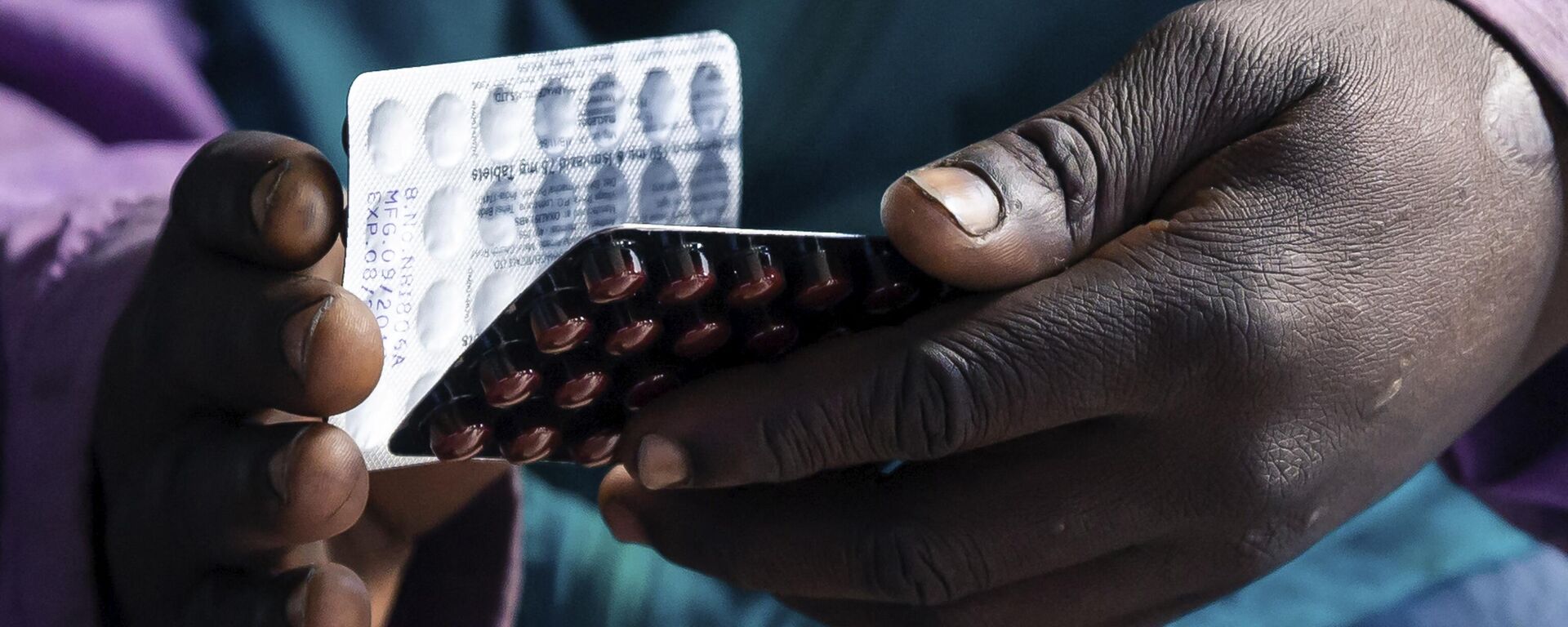https://en.sputniknews.africa/20231208/africas-hiv-vaccine-trial-halted-ahead-of-schedule-due-to-ineffectiveness-report-reveals--1064019609.html
Africa's HIV Vaccine Trial Halted Ahead of Schedule Due to Ineffectiveness, Report Reveals
Africa's HIV Vaccine Trial Halted Ahead of Schedule Due to Ineffectiveness, Report Reveals
Sputnik Africa
PrEPVacc is an African-led, European-supported HIV prevention trial running in East and Southern Africa since 2018. It is simultaneously integrating... 08.12.2023, Sputnik Africa
2023-12-08T16:49+0100
2023-12-08T16:49+0100
2023-12-08T16:55+0100
sub-saharan africa
hiv/aids
southern africa
south africa
uganda
european union (eu)
east africa
tanzania
medicine
vaccine
https://cdn1.img.sputniknews.africa/img/07e7/0c/08/1064021790_0:0:1024:577_1920x0_80_0_0_c8193feb2b4fc3fcdb1d91a5be63bafb.jpg
The PrEPVacc trial was stopped on November 22 due to the high probability of experimental HIV vaccine inefficacy, the PrEPVacc trial reported.The PrEPVacc trials tested two different combinations of HIV to see if either could prevent infection in people at high risk of contracting the virus. The trials were led by African researchers, supported by European experts, and funded by a €15 million grant from the EU's European & Developing Countries Clinical Trials Partnership.The vaccines were tested on 1,512 participants aged 18-40 at four trial sites in Uganda, Tanzania, and South Africa, with 13% of the participants being men and 87% — women. The clinical trial began in December 2020.Despite the discontinuation of vaccinations, the oral PrEP component of the trial will continue to be tested.Furthermore, according to the release, the fact that PrEPVacc is discontinued underscores how difficult it is to develop an HIV vaccine that works. The RV144 "Thai trial" — the largest HIV vaccine trial in history — is the only one to date to demonstrate some efficacy in reducing HIV acquisition by 31.5% over three years. However, the Thai government didn't approve the vaccine as it didn't reach the required threshold of 50%, according to the JSTOR Daily.RV144 was also tested in South Africa, but the trials were halted in February 2020 as interim results showed it was not working.HIV affects about 39 million individuals worldwide as of 2022, with over 25 million of those cases occurring in sub-Saharan Africa. Thus, it is important to continue efforts to develop an effective HIV vaccine.The vaccination trial's complete outcomes won't be known until all study visits are finished, which the research teams hope to accomplish by June 2024. In the second half of 2024, the complete results will be analyzed and shared with participants, study teams, and the public.Human immunodeficiency virus (HIV) is an infection that targets the body’s immune system. It attacks the body’s white blood cells, resulting in a weakened immune system.HIV can be treated with antiretroviral therapy and prevented in those who become infected. However, there is no cure for HIV, and if left untreated it can progress to AIDS, the most advanced stage of the disease.
https://en.sputniknews.africa/20231201/zimbabwe-marks-turning-point-in-hivaids-prevention-as-president-urges-to-raise-awareness-1063896568.html
southern africa
south africa
uganda
east africa
tanzania
Sputnik Africa
feedback@sputniknews.com
+74956456601
MIA „Rossiya Segodnya“
2023
Christina Glazkova
https://cdn1.img.sputniknews.africa/img/07e7/0b/07/1063380906_0:0:673:674_100x100_80_0_0_79628b4d0cd9f29291a57aa13bbf9e7a.jpg
Christina Glazkova
https://cdn1.img.sputniknews.africa/img/07e7/0b/07/1063380906_0:0:673:674_100x100_80_0_0_79628b4d0cd9f29291a57aa13bbf9e7a.jpg
News
en_EN
Sputnik Africa
feedback@sputniknews.com
+74956456601
MIA „Rossiya Segodnya“
Sputnik Africa
feedback@sputniknews.com
+74956456601
MIA „Rossiya Segodnya“
Christina Glazkova
https://cdn1.img.sputniknews.africa/img/07e7/0b/07/1063380906_0:0:673:674_100x100_80_0_0_79628b4d0cd9f29291a57aa13bbf9e7a.jpg
hiv/aids, southern africa, south africa, uganda, european union (eu), east africa, tanzania, medicine, vaccine, virus, health
hiv/aids, southern africa, south africa, uganda, european union (eu), east africa, tanzania, medicine, vaccine, virus, health
Africa's HIV Vaccine Trial Halted Ahead of Schedule Due to Ineffectiveness, Report Reveals
16:49 08.12.2023 (Updated: 16:55 08.12.2023) Christina Glazkova
Writer / Editor
PrEPVacc is an African-led, European-supported HIV prevention trial running in East and Southern Africa since 2018. It is simultaneously integrating pre-exposure prophylaxis (PrEP) and the evaluation of experimental HIV vaccines for the first time.
The PrEPVacc trial was stopped on November 22 due to the high probability of experimental HIV vaccine inefficacy, the PrEPVacc trial
reported.
"Vaccinations to PrEPVacc trial participants have been stopped because an analysis of the data collected so far by our Independent Data Monitoring Committee has led them to conclude that there is little or no chance of demonstrating that the vaccines we are testing are reducing the risk of acquiring HIV," PrEPVacc’s Trial Director, Eugene Ruzagira, was quoted in the release.
The PrEPVacc trials tested two different combinations of
HIV to see if either could prevent infection in people at high risk of contracting the virus. The trials were led by African researchers, supported by European experts, and funded by a €15 million grant from the EU's European & Developing Countries Clinical Trials Partnership.
The vaccines were tested on 1,512 participants aged 18-40 at four trial sites in
Uganda, Tanzania, and
South Africa, with 13% of the participants being men and 87% — women. The clinical trial began in December 2020.
Despite the discontinuation of vaccinations, the oral PrEP component of the trial will continue to be tested.
"It is important to remember that PrEPVacc is three studies in one, and the PrEP part is continuing. Almost all participants received oral PrEP as a study drug, but far fewer continued on non-study PrEP. We hope that we will have valuable insights from the quantitative and qualitative findings to guide the use of oral PrEP beyond the trial," professor Sheena McCormack, PrEPVacc Project Lead said.
Furthermore, according to the release, the fact that PrEPVacc is discontinued underscores how difficult it is to develop an HIV vaccine that works. The RV144 "Thai trial" — the largest HIV vaccine trial in history — is the only one to date to demonstrate some efficacy in reducing HIV acquisition by 31.5% over three years. However, the Thai government didn't approve the vaccine as it didn't reach the required threshold of 50%, according to the
JSTOR Daily.
"We do clinical trials because we don’t know the answer to questions. It was important to find out whether the combination vaccine regimens in PrEPVacc, developed over 20 years, should be ruled out or further developed for preventing HIV. While we await the final results and analysis of individual products, I believe that our interim result puts this generation of putative HIV vaccines to bed," professor Jonathan Weber of Imperial College London, UK argued.
RV144 was also tested in South Africa, but the trials were halted in February 2020 as interim results showed it
was not working.
HIV affects about
39 million individuals worldwide as of 2022, with
over 25 million of those cases occurring in
sub-Saharan Africa. Thus, it is important to continue efforts to develop an effective HIV vaccine.
"The development of a vaccine preventing HIV is a critical goal for Africa. It is a goal that must have even greater urgency now that no HIV vaccines are being trialed for efficacy anywhere in the world," PrEPVacc’s chief investigator, Ugandan professor Pontiano Kaleebu said.
The vaccination trial's complete outcomes won't be known until all study visits are finished, which the research teams hope to accomplish by June 2024. In the second half of 2024, the complete results will be analyzed and shared with participants, study teams, and the public.
Human immunodeficiency virus (HIV) is an infection that targets the body’s immune system. It attacks the body’s white blood cells, resulting in a weakened immune system.
HIV can be treated with antiretroviral therapy and prevented in those who become infected. However, there is no cure for HIV, and if left untreated it can progress to AIDS, the most advanced stage of the disease.



